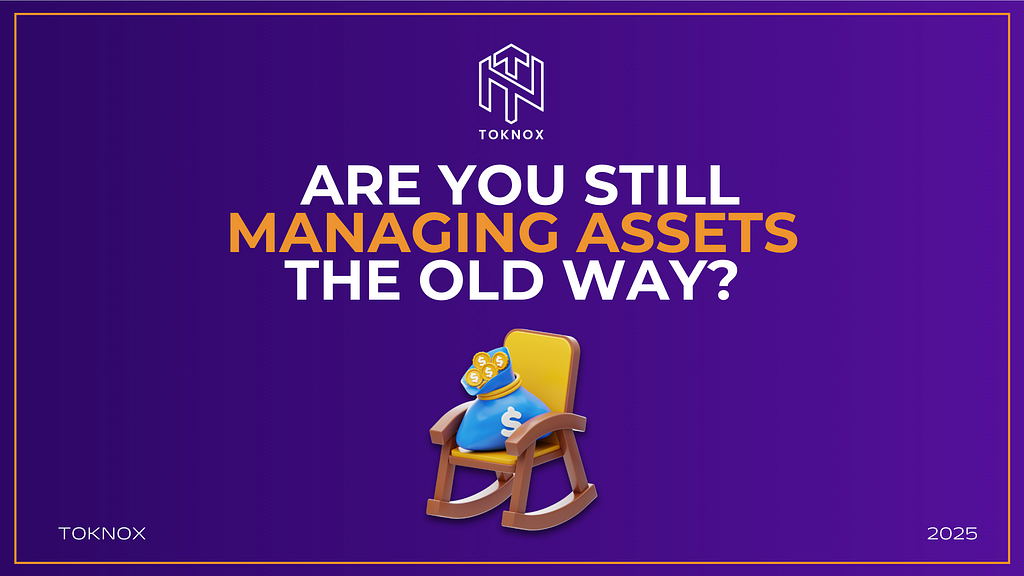Tokenization is revolutionizing the way we think about investing and asset management. In today’s economic landscape, where digitalization and decentralization are becoming the driving forces across industries, asset tokenization is emerging as one of the most promising innovations. The ability to divide ownership of physical and digital assets into tokens, and trade these tokens on blockchain-based platforms, is creating new investment models and opportunities for a much broader range of investors. But how is this transformation taking place? And how are DeFi (Decentralized Finance) and fractional ownership shaping the future of investment? In this article, we explore how tokenization is changing traditional investing, breaking down barriers and creating a more inclusive financial ecosystem.
Fractional Ownership: A New Way to Invest
Traditionally, access to investments in certain asset classes — like real estate or artwork — has been restricted by high entry costs and significant barriers. Tokenization allows ownership of these assets to be divided into small units, called tokens, which can be purchased by investors with limited budgets. For instance, a high-value property can be split into thousands of tokens, each representing a fraction of ownership. This approach democratizes access to investments, enabling more people to participate in markets that were once exclusive to wealthy investors.
Moreover, fractional ownership enhances asset liquidity, as tokens can be easily traded or sold on decentralized platforms, eliminating the need for intermediaries. Investors can buy and sell ownership shares in real time, with lower fees and significantly faster transaction times compared to traditional methods.
DeFi: Tokenization That’s Redesigning Traditional Finance
Decentralized Finance (DeFi) has become one of the most dynamic areas for the application of tokenization. DeFi refers to a financial ecosystem built on blockchain that operates without traditional intermediaries such as banks and brokers. In a DeFi system, transactions are managed through smart contracts on the blockchain, executing predefined conditions automatically and securely, without the need for a central authority.
Within this framework, tokenization enables the creation of decentralized markets where users can trade tokens representing not only physical assets, but also traditional financial instruments such as stocks, bonds, loans, and derivatives. Users can engage in peer-to-peer lending, earn interest on their holdings, and access global investment opportunities without relying on traditional banking channels.
Advantages of Tokenization and DeFi in Investments
Accessibility and Inclusiveness
Tokenization significantly lowers the entry barriers for investors. There’s no longer a need for large capital to enter real estate markets or purchase valuable artwork. Even small-scale investors can now participate in global markets through tokenized fractions of assets.
Increased Liquidity
Tokenized assets can be traded quickly and at a lower cost compared to traditional investments. This makes the entire process more efficient and provides greater flexibility for investors.
Transparency and Security
Since tokenization occurs on the blockchain, every transaction is traceable, secure, and immutable. Investors can monitor their investments in real time without depending on a central authority, reducing fraud risk and increasing trust in the system.
Smart Contracts and Automation
Smart contracts are a fundamental component of DeFi. They allow for automatic and secure transactions, minimizing human error and ensuring contractual conditions are transparently and promptly fulfilled.
The Future of Tokenization and DeFi in Investment
The future of tokenization and DeFi looks extremely promising. With ongoing advancements in blockchain technology, these innovations are helping build a more open and democratic financial ecosystem. Investors are moving away from centralized models toward more transparent and decentralized solutions, gaining more autonomy and control over their assets.
Tokenizing assets helps break down geographical and financial barriers, opening the doors to a significantly larger pool of investors, even those with small capital. DeFi platforms are enabling anyone, anywhere in the world, to invest in global projects. This is fostering a true democratization of financial markets.
What TokNox Offers with Its Services
TokNox is a tokenization platform built on blockchain technology that enables smooth and transparent management of various types of digital assets and digital processes. It guarantees data immutability and integrity, alongside reliable authentication of all actors involved in the respective processes.
TokNox is therefore the primary entry point into the world of asset tokenization and file/document notarization, creating robust mechanisms for managing and verifying the information underpinning the tokens generated.
Thanks to its extensive experience in data management, TokNox delivers top-tier technology and architecture tailored to each use case, combining various tokenization, notarization, and digital preservation standards and frameworks.
From handling simple business processes to navigating complex bureaucratic workflows — ranging from purchase order management to certifying information shared via email, transmitting immutable documents, and monitoring the installation and maintenance of physical goods — TokNox serves as the essential first step in the secure, transparent, and immutable management of both physical and digital data.
Conclusion: Tokenization Beyond Finance — The Value of Certified Data with TokNox
Tokenization isn’t just a tool for democratizing investment access — it’s a systemic transformation of how we create, validate, and exchange value. While DeFi has unlocked new frontiers in finance, the next step is to extend these benefits to data, documents, and digital processes at the heart of enterprise and institutional operations.
This is where TokNox makes a meaningful impact.
Through its advanced blockchain infrastructure, TokNox enables the application of tokenization principles — transparency, traceability, fractionalization, and security — not only to financial assets, but to every kind of information and process: raw data, contracts, workflows, certifications, orders, attestations.
In a world increasingly focused on trust, verifiability, and compliance, TokNox bridges the gap between the financial tokenization landscape and digital authentication. It offers a scalable platform for notarizing, certifying, and managing both physical and digital assets with full legal and technological validity.
